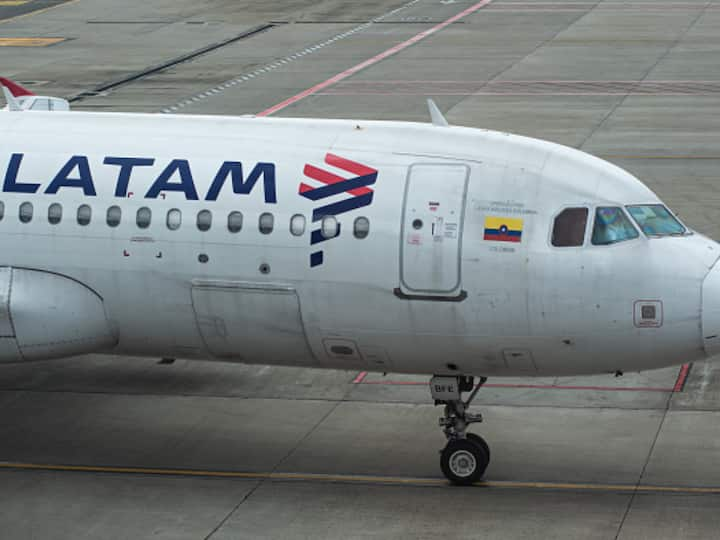A distressing incident unfolded on a commercial flight from Miami to Chile, leaving passengers and crew shaken as a pilot’s sudden collapse in the bathroom led to an emergency landing in Panama. The flight, operated by LATAM Airlines, had 271 passengers onboard and was bound for Santiago. The unfortunate turn of events highlights the unpredictable nature of health emergencies even at cruising altitudes.
Sudden Collapse and Emergency Landing
Ivan Andaur, 56, the experienced pilot in command of the LATAM Airlines flight, suffered a severe cardiac arrest while the aircraft was en route to Chile. According to reports, the distressing incident occurred around 11 pm. The co-pilots swiftly responded to the situation, taking control of the aircraft and initiating an emergency landing.
Crisis Response on Board

As the aircraft made its way towards an emergency landing at Tocumen International Airport in Panama City, the co-pilots issued an urgent plea for medical assistance from any doctors among the passengers. The dire circumstances prompted the decision to evacuate the plane upon landing. A nurse named Isadora, along with two doctors onboard, rushed to provide immediate aid to Andaur. Despite their valiant efforts, the pilot could not be revived.
Heartbreaking Outcome
Tragically, Ivan Andaur’s life could not be saved. Upon landing in Panama City, medical personnel promptly attended to the situation, but the pilot was pronounced dead. The unexpected loss of a skilled pilot during a routine flight underscores the potential challenges that can arise in the aviation industry.
Passengers’ Experience and Accommodation
Passengers onboard the flight recounted the distressing experience, with about 40 minutes into the journey when a co-pilot urgently called for available doctors on board. The severity of Andaur’s condition necessitated an emergency landing. In the aftermath, passengers were accommodated in hotels in Panama City, as flight operations were temporarily halted.
Airline’s Response and Condolences
LATAM Airlines, deeply affected by the tragic incident, emphasized their commitment to adhering to established protocols aimed at ensuring passengers’ safety and well-being during flights. The airline expressed its profound sorrow over the untimely passing of Ivan Andaur and extended heartfelt condolences to his grieving family.
This somber event serves as a stark reminder that health emergencies can occur unexpectedly, even in seemingly routine situations. It highlights the complex responsibilities of pilots and the crucial role of co-pilots and medical personnel on board in responding swiftly to such crises.
The pilot’s tragic death sheds light on the stringent health and fitness requirements that pilots must meet to ensure the safety of passengers and crew. Regular medical assessments and stress tests are conducted to evaluate pilots’ fitness for duty. However, health emergencies can still arise despite these measures, underlining the inherent uncertainties of human health.
Support Networks and Psychological Preparedness
Beyond physical health, this incident underscores the emotional toll it can take on the crew, passengers, and the airline itself. Support networks and psychological preparedness are crucial components in managing such traumatic events. Airlines often have procedures in place to provide psychological assistance and counseling to those affected.
Future Focus on Health and Safety
In the aftermath of this tragedy, airlines and aviation authorities might reflect on the need for enhanced health and safety protocols. Ensuring that crew members are equipped to handle medical emergencies, even those involving their colleagues, could be an area of emphasis. Additionally, the incident could prompt discussions about the availability of medical professionals on board or at airports during emergencies.
The sudden death of a pilot during a flight serves as a poignant reminder of the unforeseen challenges that aviation can face. It highlights the professionalism and quick thinking of the co-pilots and medical personnel on board who responded to the crisis. As the aviation industry continues to prioritize safety and well-being, incidents like this underscore the importance of preparedness, both in terms of physical health and psychological support.












